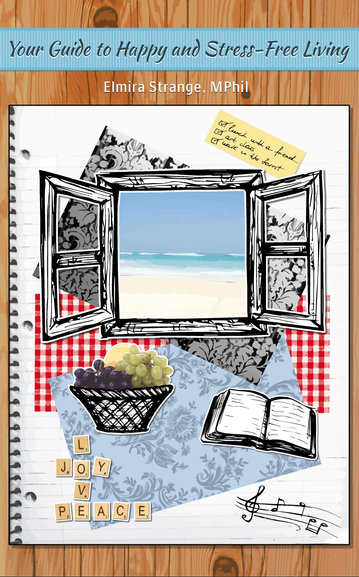Why do you sleep too much?
“Giraffes can go without sleep for weeks, while brown bats sleep for nearly the entire day”,
says the National Sleep Foundation(1).
The duration of the sleep
varies between all animals, including humans. While some people need as
little as 3 hours of sleep at night (which is very rare), the Royal College of Psychiatrists(2) recommends that we have around 8 hours of sleep each night to feel and function well the next day.
by Elia Strange

But what if you need to sleep more than 8 hours?
In fact, you might feel
that you can sleep 12 or even 24 hours if given a chance? I,
personally, feel the need for 9-10 hours most nights.
Eight or less
hours of sleep are just not sufficient for me!
According to The Independent(3)
(the British newspaper online), newborn babies can sleep for as long as
18 hours and most teenagers sleep for 10 hours.
But what if we are not
babies or teenagers anymore? Why do we need to sleep so much?
What happens to us when we sleep too much?
Some researchers(4) say that sleeping too much is another form of
insomnia (where you have troubles with falling asleep).
Basically, you
are not getting enough of the right kind of rest, especially if you do
not feel awaken and refreshed after a long sleep, and feel tired or even
sleepy during the day.
The New York Times(8) even
warned that long nights of sleep may be a sign of problematic health,
such as sleep apnoea or cardiovascular disease. Also, your oversleeping
habits may lead to heart problems in later life, particularly myocardial
infraction and even stroke(5), increased risk of dying(6), obesity and
diabetes(7).
However, if you a generally healthy individual, your excessive sleep
duration may be explained by your genetic predisposition(8). So if
someone in your family also likes to sleep a lot, then this might be a
sign of this hereditary trait in you. Some people just need to sleep a
lot, and if they are sleeping less than they need to, their immune
system may become weaker, leading to all kind of viruses and infections.
(Personally I like this explanation!)
Some researchers suggest that between those who sleep short- and long-
hours may be certain psychological differences!(10). Have a look below
at the psychological profile of ‘Sleepers’ and see if you think it is you.
Psychological Profile of ‘Sleepers’:
Short Sleepers / Insomniacs
- Ambitious
- Active
- Energetic
- Slightly hypomanic
- (They see sleep as an unfortunate obstacle to life’s pursuits)
Long Sleepers
- Shy
- Introverted
- Anxious
- Mildly depressed
- Less energetic
- Tended to use sleep as an escape from life’s pressures
Interesting facts:
It is ok for you to sleep a lot if you are(9):
- an individual who lives on their own,
- on a low income or unemployed,
- a woman who had never been married,
- a person who perceive themselves to be in ‘the bottom quartile of society’
- Nearly 9 % of US population sleep for 9 or more hours(5).
- If you are still a teenager or if you are over the age of 60, it is ok for you to sleep 9-10 hours a day(10).
ALSO, some people sleep more in winter months and less in summer months.
This may be explained by natural hormonal responses and your melatonin
secretion(10). In other words, you are more sensitive to natural light,
and when the sun goes down, you want to sleep too.
I hope now you have a good idea about why you might be sleeping so much.
From my own experience, I can say that most people I know (who say they have sleep problems quite regularly), are:
1) working from home,
2) unemployed,
3) postgraduate students who do not have to attend University every day (or distance learners),
4) people suffering from a chronic illness and pain,
5) individuals working shift- patterns or night shifts,
6) people who tend to worry and get anxious easily,
7) people with small children, teenagers, or pets (particularly young ones).
If you belong to any of these groups, then adhering to good sleeping
hygiene, for example, going to bed and getting up at the same time every
day (unless you are working irregular shift hours) is very important!
However, if, after reading this article, you are still confused
about your need for a long sleep and if you are worrying that it’s bad
for your health, please see a doctor for a medical check up. This might
be the best way for you to identify the exact cause of the problem.
Other articles you might be interested in:
How to get a good night sleep
How to be happy in this 'unhappy' world
Stop irrational thinking in 6 easy steps
How optimistic are you? (Fun quiz)
.... or go to:
Article Archives
Archives (Page 2)
Home Page (Coping with Stress)
REFERENCE:
Connor, S. (2009). So, why do some people
need such little sleep? Retrieved from the Independent News Online Web
site:
http://www.independent.co.uk/news/science/so-why-do-some-people-need-such-little-sleep-1771873.html(3)
Heslop,
P., Smith, G.D., Metcalfe, C., Macleod, J., & Hart, C. (2002).
Sleep duration and mortality: the effect of short or long sleep duration
on cardiovascular and all-cause mortality in working men and women.
Sleep Medicine, 3 (4), 305-314.(6)
Insomnia Connection. (2011).
Too much sleep – how much is too much? Is it possible to have too much
sleep? Retrieved from Insomnia Connection Web site:
http://www.insomnia-connection.com/too-much-sleep.html(4)
Krueger,
P.M. & Friedman, E.M. (2009). Sleep duration in the United States: A
cross-sectional population-based study. American Journal of
Epidemiology, 169 (9), 1052-1063.(5)
O’Connor, A. (2012). Why
some people sleep more than others. Retrieved from The New York Times
Web site:
http://well.blogs.nytimes.com/2011/12/12/why-some-people-sleep-more-than-others/(8)
National
Sleep Foundation. (2011). Animals’ sleep: Is there a human connection?
Retrieved from the National Sleep Foundation Web site:
http://www.sleepfoundation.org/article/how-sleep-works/animals-sleep-there-human-connection(1)
Patel,
S.R., Malhotra, A., Gottlieb, D.J., White, D.P., & Hu, F.B. (2006).
Correlates of long sleep duration. Sleep, 29 (7), 881-889.(9)
Youngstedt,
S.D., & Kripke, D.F. (2004). Long sleep and mortality: Rationale
for sleep restriction. Theoretical Review. Sleep Medicine Reviews, 8,
159-174.(10)
RCPsych. (2011). Sleeping well. Royal College of
Psychiatrists, June 2011. Retrieved from the RCPsych Web site:
http://www.rcpsych.ac.uk/mentalhealthinfoforall/problems/sleepproblems/sleepingwell.aspx(2)
Sleep
Disorders Health Centre. (2010). Physical side effects of oversleeping.
Retrieved from the Web MD Web site:
http://www.webmd.com/sleep-disorders/guide/physical-side-effects-oversleeping(7)
Sign
up below to receive my free email newsletter with new fresh articles to
help you to become healthier and happier.
It's sent about once a month.
No spam. No
sharing of your email address. Easily unsubscribe at any time.
Best Articles:
10 tips to strengthen your marriage
Best ways to manage your stress
How to get what you want (the Law of Attraction)
Why do I need to eat healthy?
Signs and stages of stress
13 Facts about sugar addiction
7 Reasons for our unhappiness
Why people commit suicide
How to get a good night sleep
Try these Tests and Quizzes:
Is it time to take stress seriously?
How well do you know yourself?
Can you talk to teenagers?
Do you have a time to recreate?
Can you cope with stress well?
The Latest Articles:
Green Smoothie Recipe
Stress in Parents and Carers of disabled children (VIDEO)
Did you find your dream job yet?
Is an eye mask good for sleeping?
How to look and appear confident
Why am I tired all the time?
Exercise tips: 8 easy ideas for losing weight and become fitter
15 Sure signs that you are stressed
Are memory foam mattresses worth it?
How stress affects your health: What stress is doing to your body
How to get what you want (the Law of Attraction)
How to be more patient
How to deal with SAD: Autumn depression
How to stop negative thinking
How bad is your memory? (Fun Quiz)
What is love - in children words
How to make people like you?
Why do I forget things?
10 Tips to strengthen your marriage
Would you move abroad?
Are holidays worth it?



